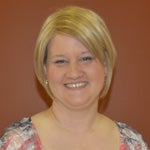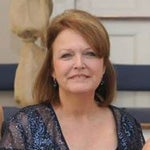Don’t wait until you have problems (Relay For Life)
Published 4:49 pm Monday, April 4, 2016
By Jeannie Smith
“You have cancer!” How did you feel when you heard those words?
“Shocked,” Sandy Pearce of Maplesville said. “I felt so good, I never felt bad.”
Pearce was diagnosed with colorectal cancer in December of 2012 after a series of tests. Her husband recalls sitting in the waiting room for her colonoscopy to be done, and he knew when the nurse walked through the room and said, “I’ve got to tell a patient’s family, a patient who is otherwise healthy as a horse, that she has cancer.”
He was devastated, knowing it was his wife.
Sandy began chemo/radiation to shrink the tumor before surgery. The chemo drug her doctor used to treat her cancer was 5 FU, a common drug to treat colon cancer. (5 FU) was synthesized by longtime American Cancer Society grantee, Charles Heidelberger, PhD, in 1958.
Pearce’s tumor responded well to treatment. Before surgery, her doctors were amazed that it was almost gone.
In April of 2013, she had surgery to remove what remained of the tumor and started chemo again in August to complete her treatment plan in November of 2013.
Pearce said the hardest part of her cancer journey was telling her kids.
She was blessed by so many people that cared for her. She received so many cards from family, friends and even strangers.
She was teaching third grade at Maplesville Elementary during her cancer journey, and her students presented her with a “living locket” to encourage her and let her know just how much they loved her.
Pearce loves to work in the yard and looks forward to adding new mulch to her bushes and around the pool each year. During her treatment, she was not able to do what she enjoyed doing every day.
God sent a neighbor who brought a truck load of mulch, and her yard was freshly mulched as always. He didn’t realize just how much he blessed her.
What words of advice would Pearce give to patients fighting colon cancer? “Find a colon cancer survivor, someone who has been through it,” Pearce said. “Most important, I wish I could walk around wearing a sign that read, ‘Have a colonoscopy—don’t wait until you have problems.'”
Pearce is married to Bill Pearce. They have two daughters, Brittany (Brad) Yeargan and Brooke (Clay) Jones, and two grandchildren, Hayden Yeargan and Pearce Yeargan.
Making an impact in every community
As the third leading cause of death in both men and women in the United States, it is a major public health problem. Fortunately, we have a clear path to changing those statistics: screening. When adults get screened for colorectal cancer at an appropriate age, it can be found early when treatment is most effective.
Sadly, about 1 in 3 adults – 23 million people – are not getting tested as recommended. That is why the American Cancer Society co-founded the National Colorectal Cancer Roundtable CDC to join forces with dozens of other organizations to work toward a goal of 80 percent of adults aged 50 and older being regularly screened for colorectal cancer by 2018.
Increasing screening rates to this level will save thousands of lives.
What can you do? If you are 50 or older, talk with your doctor about screening options. And encourage others in your life to do the same. To learn more, visit cancer.org.
As a cancer survivor, you know firsthand that a cancer diagnosis brings with it a lot of questions. Since 1997, the American Cancer Society National Cancer Information Center (1-800-227-2345, cancer.org) has been there to answer those questions 24 hours a day, seven days a week, helping people through every step of their cancer journey, no matter where they live.
Each year, the NCIC fulfills about 800,000 requests for information and helps more than 150,000 patients with transportation, lodging and other services to remove barriers to care. Through the NCIC, the American Cancer Society also provides access to clinical trials.
By focusing on providing the most reliable, up-to-date cancer information, the American Cancer Society National Cancer Information Center helps us be present for every cancer patient in every community.
Where to find help
•1-800-227-2345: Available 24 hours, 7 days a week.
•Cancer.org: Information and news on all types of cancers.
•Clinical Trials Matching Service: Call 1-800-303-5691 to speak to a specialist.
•Cancer Survivors Network: Free online community visit csn.cancer.org.
•Hope Lodge: Program provides free overnight lodging to cancer patients.
•Patient Navigator Program: Help guide patients and families through their cancer experience.
•Look Good Feel Better: Free workshops that help woman manage appearance-related side effect of treatment.
•Reach to Recovery: Matches breast cancer survivors with each other for support
Jeannie Smith is a community manager for Relay For Life. Look for more columns from her in upcoming editions of The Clanton Advertiser.




